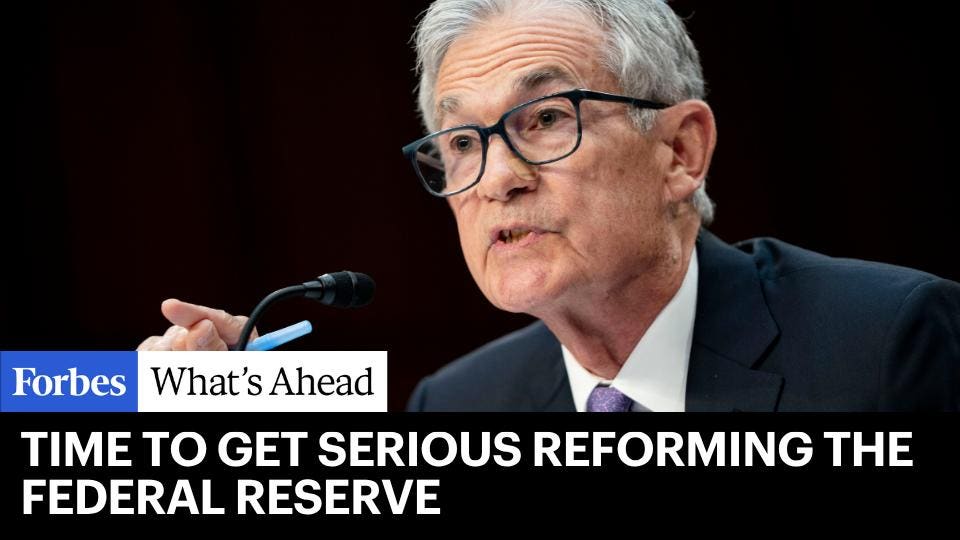The Federal Reserve needs to be hit with the intellectual version of a B-2 bomber or a DOGE-like intervention. Our central bank is behaving badly. It won’t reduce interest rates, in no small part because it’s angry over Donald Trump’s loud calls to cut rates and his consistent carping at Fed boss Jerome Powell.
The proof of the Federal Reserve’s animus toward President Trump is that the central bank cut interest rates twice before the presidential election—which would have presumably helped the Democrats—and it has resisted cutting rates since the beginning of Trump’s second term, even though inflation is lower than it was last year. This is deeply disturbing: Hurt the economy because you loath the commander-in-chief.
Letting personal snits over the President’s verbal broadsides guide monetary policy is shocking enough. But a deeper problem within the Federal Reserve is the rock-solid belief that it must manipulate economic activity to control inflation.
For decades the Fed has looked askance whenever the economy gets up a real head of steam. In its eyes, prosperity means more demand for products and services, which can trigger higher prices and higher wages. And to Fed economists—there are some 400 armed with PhDs in the bank’s Washington headquarters and probably several hundred more in the Fed’s 12 regional banks—that means inflation. In their minds, since good times produce higher prices, the economy must be curbed, even if it means inducing a recession. “The economy is overheating,” is their cry. Ask yourself, if your real income rises, do you start overheating and sweating?
The stupidity here is profound. A free economy operates on prices. If things become too expensive, buyers will cut back. Producers will produce less or find ways to make their goods or services less expensive or make them better. Compare your handheld phone today—a virtual supercomputer—with the original cell phone of more than 40 years ago, which was the size of a shoe box, cost almost $4,000, was as heavy as a brick and had barely an hour of battery life. Or compare the typical house today with what was common a few decades ago.
Free markets are not perfect, because people are not perfect. But left alone—that is, not overly harmed by taxes, regulations and meddling from the Federal Reserve—markets will adjust and move forward if there are excesses or shortages.
Jerome Powell snarled a lot last week about tariffs and their potential to raise prices. So let’s get this right. Tariffs, which are indeed a form of sales tax, may raise prices; therefore, the Fed is saying, it must respond by depressing the economy by keeping short-term interest rates artificially high.
The word “weird” doesn’t begin to describe this logic. Let’s deliberately hurt the economy because tariffs may raise prices.
This gets to how wrong-headed the Fed is on the subject of inflation. It doesn’t distinguish between price changes resulting from government actions, such as tariffs and pandemic lockdowns, or natural disasters, such as droughts and earthquakes, and price changes that result from reducing the value of the dollar.
The Federal Reserve must understand the basic difference between monetary inflation—i.e., the integrity of the greenback—and nonmonetary inflation, such as sales taxes. If it wants to mouth off on tariffs and other issues, well, it’s a free country. However, keeping the dollar stable in value is what our central bank should be focused on.
So what’s to be done? The Fed isn’t going to change on its own. That’s why its next head must be prepared to engage in a DOGE-like sweep in personnel to overhaul this insular, wrong-thinking institution. In preparation, officials like Treasury chief Scott Bessent should be making the case for why the Fed’s current assumptions and operating models are so egregiously erroneous.
Read the full article here

